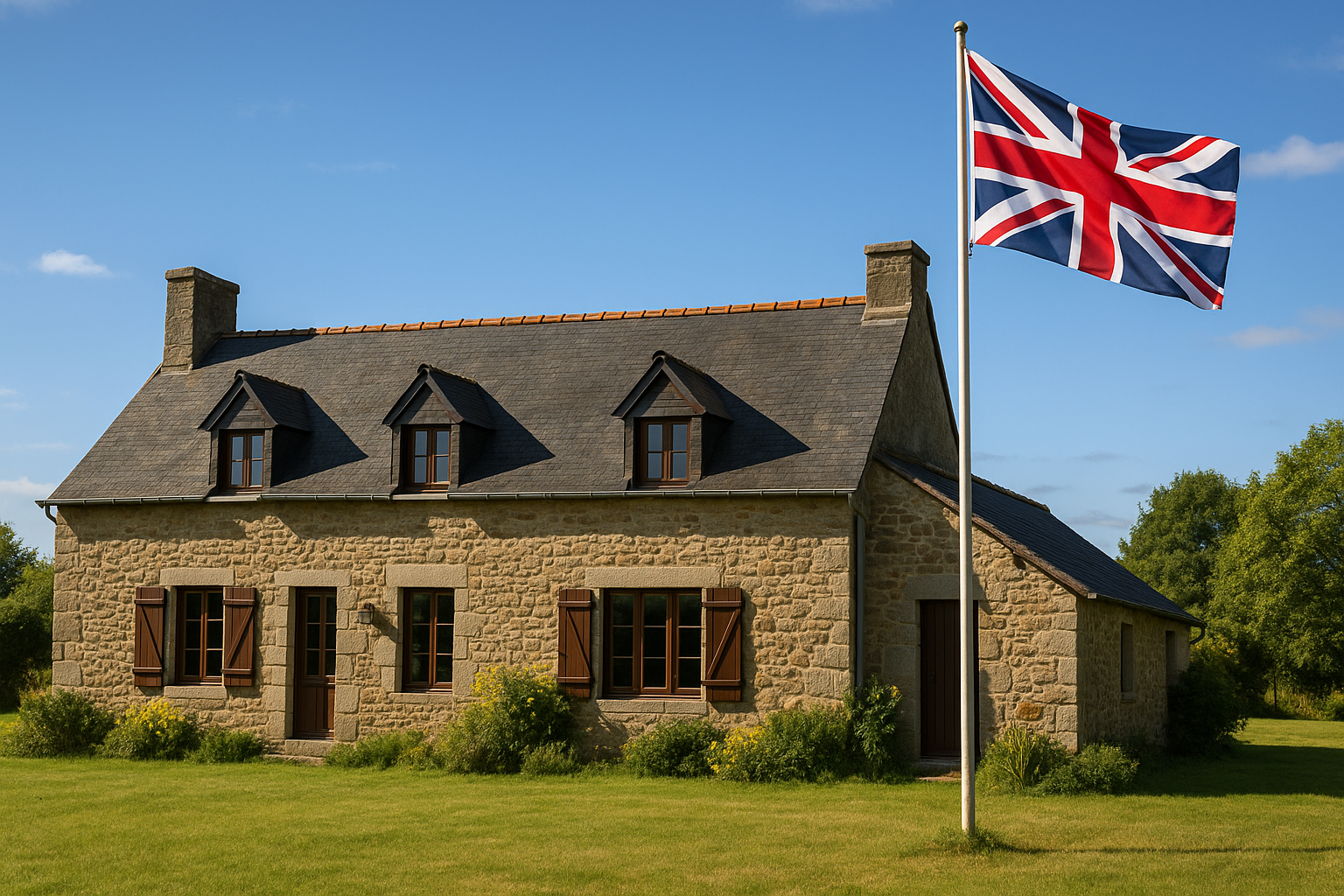France is one of the most attractive real estate markets for foreign investors.
But buying property here comes with specific rules and opportunities you might not know yet.
Whether you’re looking for a countryside home, a rental investment, or a renovation project, here’s what you must know about buying real estate in France — and how to find hidden gems others miss.
1. Buying Property in France: How It Works
A. The Role of the Notaire
In France, a “notaire” is mandatory for any real estate transaction.
The notaire is a public official who:
- Ensures the transaction is legally valid,
- Handles all necessary checks (ownership, rights, taxes),
- Manages the funds securely (you transfer the purchase money to the notaire, not directly to the seller).
You do not need a separate lawyer unless you want additional advice.
The notaire is neutral and acts for both the seller and the buyer.
🔎 Good to know: Notary fees (“frais de notaire”) represent around 7–8% of the purchase price for an existing property.
B. Boundary Survey (“Bornage”) and Land Registry (“Cadastre”)
In France:
- The cadastre is the official land map that shows plots and property outlines.
- Bornage refers to a professional boundary survey done by a licensed expert to legally mark exact property limits.
⚡ Important: The cadastre is for information purposes only.
If you want legal certainty over property limits (especially for land, gardens, or fencing projects), you should ask for a bornage.
C. Taxes and Ongoing Costs
- Property tax (“taxe foncière”) must be paid annually by all property owners.
- Housing tax (“taxe d’habitation”) still applies to second homes (including those owned by foreigners), even though it has been abolished for main residences.
- Rental income is taxable in France, even if you live abroad. You may need to declare it separately depending on your home country’s tax treaty with France.
💡 Tip:
If you rent your property furnished, you may benefit from LMNP status (Non-Professional Furnished Rental) which allows you to deduct expenses and depreciate the property value, reducing your French taxable income.
D. Financing Options
Foreign buyers can get mortgages from French banks, but:
- Higher deposit requirements (20–30% minimum),
- More paperwork (proof of income, residency documents),
- Higher rates compared to domestic loans.
Cash offers often help secure better deals.
2. How to Find the Right Property in France (Thinking Differently)
Most French buyers focus on:
- Major cities (Paris, Lyon, Bordeaux),
- Move-in-ready properties,
- Proximity to schools and workplaces.
As a foreign investor, you can spot opportunities they ignore by looking for:
- Countryside properties close to transport hubs,
- Properties needing renovation (often much cheaper),
- Small towns near tourist destinations,
- Properties ready for short-term or seasonal rental.
3. Example: Dol-de-Bretagne — A Hidden Gem for Investors
Dol-de-Bretagne in Brittany is a perfect example of an under-the-radar opportunity.
Why choose Dol-de-Bretagne?
- A charming, historic French town with medieval streets and a stunning cathedral.
- TGV high-speed train station: only 2h30 from Paris!
- Ideally located near:
- Mont-Saint-Michel (30 min),
- Saint-Malo (30 min, coastal and historical city),
- Cancale (25 min, seafood paradise),
- Dinan (medieval town),
- Domaine des Ormes (large golf and resort complex),
- Emerald Coast beaches (Saint-Malo, Dinard…).
Real estate prices in Dol-de-Bretagne are affordable compared to coastal towns, with strong seasonal rental potential.
4. What is Patrim — and How It Helps You Invest Smart
Patrim is a French government tool that provides real sales price data for real estate across France.
Using Patrim, investors can:
- Compare the actual selling prices in a given city, town, or even neighborhood,
- Evaluate if a property is fairly priced,
- Avoid overpaying based only on asking prices.
At pasdagence.fr, we include Patrim-based price comparisons directly in listings whenever possible, so you can see how a property price compares to real transactions in the area (€ per sqm).
5. The SCI: Buying Property Together Made Easy
An SCI (Société Civile Immobilière) is a flexible French company structure designed for real estate ownership.
Advantages of an SCI:
- Several people (family, friends, investors) can co-own a property through shares,
- It’s easier to sell or transfer ownership later,
- Simplifies inheritance and succession planning,
- Possible tax optimization depending on your situation.
📋 Setting up an SCI requires drafting statutes and registering it with a notaire. It’s a smart move if you plan to invest together.
6. Why pasdagence.fr is Different
Unlike mass-market platforms like Leboncoin:
- Bilingual listings (French and English available),
- Properties targeted for investors (ready-to-rent, renovation projects, meublé opportunities),
- Market price comparisons based on official data (Patrim),
- Tools to maximize property value, such as AI-based home staging and virtual staging,
- Direct contact with sellers, no hidden agency fees.
Conclusion: France Offers More Than You Think
If you understand how the French system works:
- The role of the notaire,
- Property taxes and cadastre,
- How to read real sales data through Patrim,
- How to use structures like an SCI to invest smartly,
then you can seize amazing opportunities across rural France.
Small towns like Dol-de-Bretagne offer everything you need: charm, accessibility, affordable prices, and tourist appeal.
➡️ Start your search today on pasdagence.fr — and unlock the true potential of investing in France.

